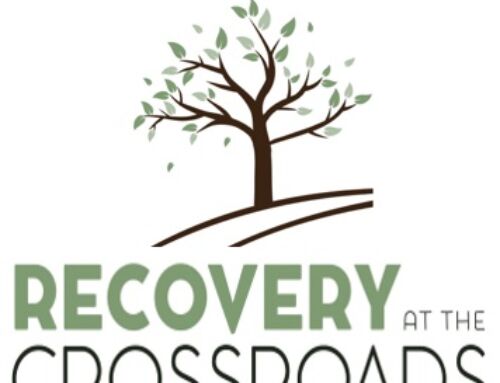Many individuals struggling with drug and alcohol addiction hesitate to enter treatment due to concerns about paying for rehab. While the financial aspect of addiction treatment can seem overwhelming, it’s important to understand that payment options are available. The goal of substance abuse treatment is to provide individuals with the care they need to achieve long-term recovery, and cost should never be a barrier.
Whether you’re considering an intensive outpatient program, a partial hospitalization program, or residential rehab, there are ways to make addiction treatment accessible. Recovery at the Crossroads is committed to helping patients navigate payment options to access effective treatment programs.
Understanding the Cost of Rehab
The cost of treatment varies based on several factors, including the type of program, length of stay, and the services offered at a treatment facility. Some key factors that influence rehab costs include:
- Type of Treatment Program – Outpatient treatment, such as an intensive outpatient program or a partial hospitalization program, can be more affordable than inpatient rehab.
- Length of Care – Longer treatment programs may cost more, but they also provide extended support for managing withdrawal symptoms and preventing relapse.
- Services and Therapies Provided – Many rehab centers offer specialized services like holistic therapies and and medication-assisted treatment, all of which can affect overall expenses.
While paying for rehab may seem daunting, investing in addiction treatment can prevent greater financial losses in the long run. Untreated substance abuse often leads to medical complications, legal issues, and lost income. Seeking professional help at a rehab facility can improve overall well-being and lead to a substance-free future.
The Affordable Care Act and Addiction Treatment
The Affordable Care Act (ACA) has significantly improved access to addiction treatment by requiring insurance providers to cover substance abuse treatment and mental health services. Under the ACA, addiction is considered a medical condition, and treatment is classified as an essential health benefit.
Key ACA Benefits for Substance Abuse Treatment
- Expanded Coverage – Many insurance plans, including federal military insurance, now cover outpatient treatment and partial hospitalization programs.
- Elimination of Pre-Existing Condition Denials – Individuals cannot be denied insurance coverage due to a history of substance abuse or co-occurring disorders.
- Coverage for Essential Treatment Services – Health insurance must include services such as detox, medication-assisted treatment, and therapy sessions.
- Financial Assistance – Many individuals qualify for reduced rehab costs through ACA marketplace plans or federal funding programs.
If you are unsure whether your insurance covers alcohol addiction treatment or drug rehab, Recovery at the Crossroads can help you explore your treatment options with us and ease the fear of paying for rehab.
Using Health Insurance When Paying for Rehab
One of the most common ways to cover the cost of addiction treatment is through health insurance. Many major insurance providers cover some or all of the expenses associated with substance abuse treatment.
In-Network vs. Out-of-Network Insurance Coverage for Addiction Treatment
Understanding whether a rehab center is in-network or out-of-network with your insurance provider can make a significant difference in the overall cost of treatment.
- In-Network Insurance Coverage – Many insurance providers have agreements with specific treatment facilities, reducing out-of-pocket expenses for patients.
- Out-of-Network Insurance Coverage – Some plans cover treatment at out-of-network rehab centers, but the patient may be responsible for more out-of-pocket expenses. However, out-of-network benefits can provide a wider array of options when choosing an addiction treatment program.
How to Verify Your Insurance Coverage for Substance Abuse Treatment
Before entering treatment, it’s essential to verify insurance coverage to determine what services are included in your plan. You can:
- Contact your insurance provider directly to ask about substance abuse prevention, mental health services, and addiction treatment benefits.
- Review your insurance policy to understand deductibles, copays, and annual coverage limits.
- Reach out to Recovery at the Crossroads for a free insurance verification and consultation for treatment at our rehab.
Maximizing Your Insurance Benefits for Addiction Treatment
Navigating the financial aspects of addiction treatment can be overwhelming, but understanding how to maximize your insurance benefits can significantly reduce your out-of-pocket expenses. One of the most important factors to consider is your deductible – if your plan requires a deductible. This is the amount you must pay before your insurance starts covering a larger portion of your treatment costs. If you have already met part or all of your deductible for the year, your financial responsibility for rehab could be significantly lower. It’s important to review your policy details and speak with your insurance provider to determine where you stand in meeting your deductible and what that means for your treatment expenses.
Another way to manage the cost of rehab is by utilizing Health Savings Accounts (HSAs) or Flexible Spending Accounts (FSAs). These accounts allow you to set aside pre-tax dollars specifically for medical expenses, including addiction treatment. If you have an HSA or FSA, you can use these funds to pay for therapy, medications, and other rehab-related costs. This can be particularly beneficial for individuals who have a high-deductible health plan or who need to cover copays and other out-of-pocket expenses. By using these accounts strategically, you can alleviate some of the immediate financial strain associated with rehab.
If your insurance provider denies coverage for addiction treatment, it does not necessarily mean you are out of options. You have the right to appeal a denied claim and request reconsideration. It is always wise to appeal if you receive a denial as they are often a result of an administrative error.
The True Cost of Not Seeking Treatment
While paying for rehab may seem like a financial burden, the cost of untreated addiction is often much higher. Without treatment, individuals may face:
- Medical Expenses – Chronic substance abuse can lead to costly medical conditions, requiring hospitalization and long-term care.
- Legal Costs – DUI charges, arrests, and legal fees can accumulate for those struggling with alcohol addiction or drug use.
- Job Loss and Financial Instability – Addiction can interfere with employment, leading to lost income and reduced earning potential.
Investing in a treatment program not only improves health and well-being but also prevents long-term financial strain.
How Recovery at the Crossroads Can Help
At Recovery at the Crossroads, we understand that entering treatment is a significant decision, and we are committed to providing a supportive environment for individuals seeking recovery. Our rehab facility offers:
- Comprehensive outpatient programs, including an intensive outpatient program and a partial hospitalization program.
- Individualized approach to treatment, ensuring that each patient receives personalized attention and care.
- Support services, including family therapy sessions, group therapy and individual therapy, EMDR, trauma treatment and holistic therapies.
- Assistance with insurance verification and exploring payment options.
Start Your Recovery Journey Today
If you or a loved one is struggling with substance abuse, don’t let financial concerns prevent you from seeking help. Recovery at the Crossroads offers a holistic approach to addiction treatment, focusing on mental health, well-being, and long-term recovery.
Contact us online or call 888-342-3881 today to learn more about paying for rehab, verify your insurance coverage, and take the first step toward a substance-free future. Your recovery journey starts now.



